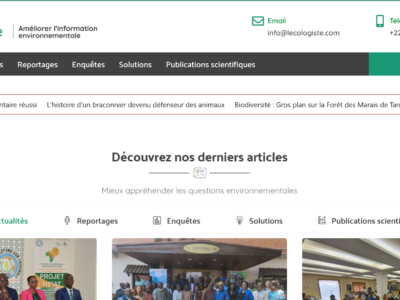This post is part of our International Relations & Security coverage.

UNOCI Conducts Disarmament Operation in Abidjan, Côte d'Ivoire – February 2012. By United Nations Photo (CC BY-NC-ND 2.0)
According to a controversial report commissioned by the United Nations, former Ivorian President Laurent Gbabo's exiled allies are recruiting Islamists from Northern Mali to destabilize the current government of President Alassane Ouattara.
News of the report broke on Saturday, October 6, 2012 on Radio France International (RFI). In an article entitled “Côte d'Ivoire: UN report rich in revelations” [fr] RFI describes the alleged links between the pro-Gbabo Ivorian Patriotic Front (FPI) and Ansar Dine Islamists in Mali. Their report also claims that a meeting took place on the border between Mauritania and Senegal to discuss the mobilization of mercenaries.
Truth or propaganda?
French national newspaper Le Figaro took up the RFI story [fr], followed by the Associated Press, whose story was republished on the New York Times and other international news sites.
Meanwhile, a spokesperson of the UN mission in Cote d'Ivoire (UNOCI) emphasized that the report was by no means binding upon the UN [fr]:
Contrairement à ce qui a été dit sur Rfi et qui a semé la confusion, ce n’est pas un rapport de l’Onu. C’est un rapport d’experts indépendants qui doit être soumis au Conseil de sécurité.
(…) les conclusions de ce rapport n’engagent que ces experts.
Il faut qu’on attende tous de voir le rapport et de voir les preuves qui ont été apportées par les experts. Pour pouvoir établir si les éléments sont vrais et savoir ce que les experts ont comme éléments de preuves.
Contrary to what has been said on RFI and sowed confusion, this is not a UN report. It is an independent expert report to be submitted to the Security Council.
(…) the findings of this report solely bind those experts.
We have to wait for everyone to read the report and see the evidence collected by experts to determine whether the elements are true and what the elements of proof they have.
The five independent experts in question were mandated by the UN Security Council and appointed by the Secretary General in June 2012.
Théophile Kouamouo, a well-known blogger and editor in chief of Cote d'Ivoire pro-Gbagbo opposition newspaper Nouveau Courrier doubts [fr] the accuracy of the UN expert investigations:
Les experts doivent, pour publier une information, se fonder sur des sources documentaires éprouvées ou au moins deux sources indépendantes. Ils doivent aussi, autant que faire se peut, contacter les mis en cause et recueillir leur version des faits. Ce qui n’a pas encore été fait, selon les nombreuses personnalités interrogées par Le Nouveau Courrier. Par exemple, sur un sujet comme la prétendue réunion de Takoradi, Marcel Gossio, par exemple peut aisément prouver qu’il n’était pas au Ghana à la date citée.
The experts should, before publishing a report, rely on documented sources tested or based on at least two independent sources. They should also, whenever possible, contact the respondents and collect their version of facts. This has not been done, according to numerous persons interviewed by The New Courier. For example, on a subject like the alleged meeting in Takoradi (Ghana), Marcel Gossio, can easily prove that he was not in Ghana at the date cited.
Casting further doubt on the report's accuracy, Kouamouo assumes that the current Ivorian regime must have provided the UN-appointed experts with the mobile phone messages exchanged between exiled FPI politicians and Islamists:
Par ailleurs, selon RFI, le rapport (?) évoque des SMS interceptés et qui seraient des preuves contre les pro-Gbagbo. Or, le Comité des experts ne comporte en son sein aucun expert en écoutes téléphoniques, et l’ONUCI non plus. La réalité doit être la suivante, au-delà de cette opération de propagande bien huilée. Il est fort probable que, tout simplement, les sécurocrates du régime Ouattara aient livré de prétendues «preuves» aux experts.
Moreover, according to RFI, the report (?) evokes intercepted SMS messages as evidence against the pro-Gbagbo. However, the expert committee is not comprised of experts on wiretapping, and neither is UNOCI. The reality must be that, beyond this well-oiled propaganda operation, it is highly probable that the securocrats of Ouattara's regime have simply released the alleged “evidence” to the experts.
 This post and its translations to Spanish, Arabic and French were commissioned by the International Security Network (ISN) as part of a partnership to seek out citizen voices on international relations and security issues worldwide. This post was first published on the ISN blog, see similar stories here.
This post and its translations to Spanish, Arabic and French were commissioned by the International Security Network (ISN) as part of a partnership to seek out citizen voices on international relations and security issues worldwide. This post was first published on the ISN blog, see similar stories here.







1 comment
Le déni des faits par les partisans farouches de M. Gbagbo (et M. Kouamouo fait partie de ceux là) ne date malheureusement pas d’hier. Durant la crise post-électorale nous avons pu voir tout cela (fausses photos d’atrocités sur le web, etc).
Tout cela est bien triste et ce n’est pas en faisant l’autruche que les problèmes de cohésion et de réconciliation se résoudront en Côte d’Ivoire. Le vrai courage est d’oser voir et dire la vérité à ses amis, pas d’absoudre leurs dérives. Les attaques de casernes, de la centrale d’Azito, etc ne sont pas des mirages.
On pourrait souhaiter de tous un traitement plus professionnel de l’actualité et plus conscient des responsabilités qui incombent à ceux qui se prévalent du beau titre de journaliste.